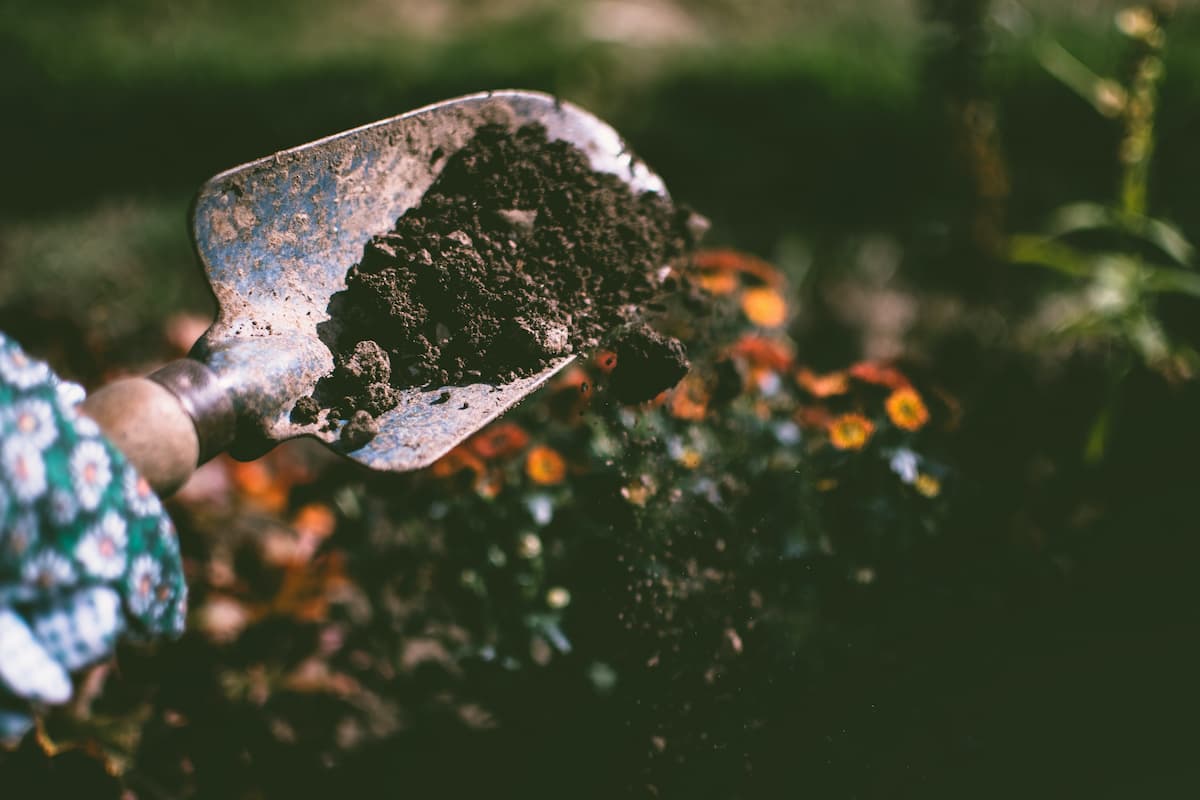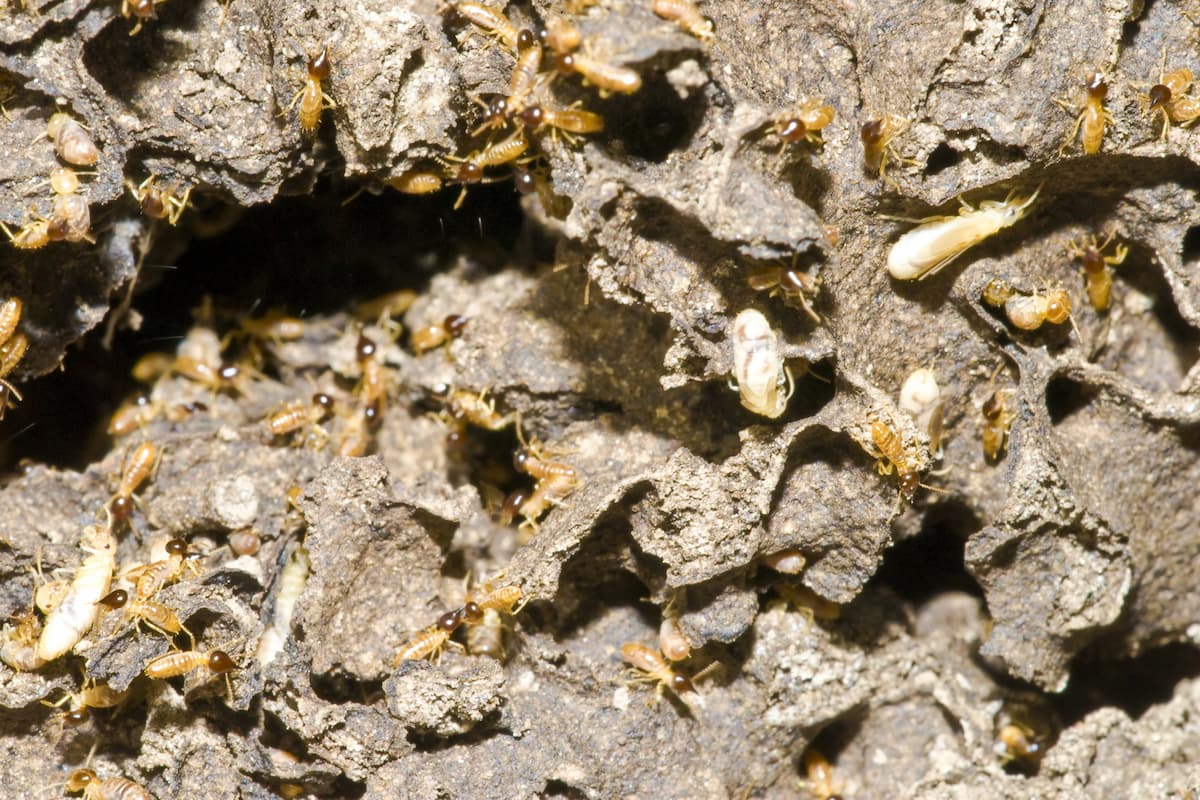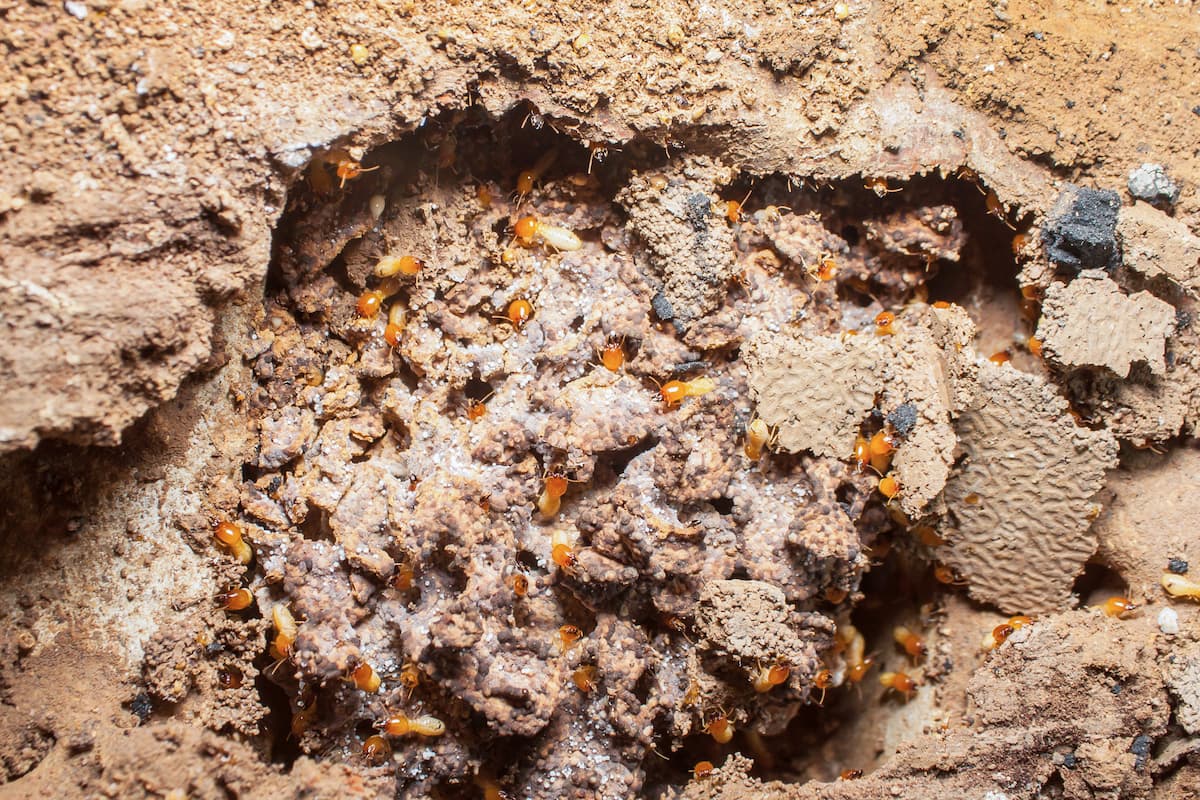Are Termites Good for Soil?
Since every animal seems to serve some kind of purpose in this world, it makes sense for people to wonder if termites benefit the soil they call home.
Yes, termites are good for the soil. Termites break down decaying plant matter so that the nutrients can return to the soil. These insects also aerate the soil when they create tunnels, prevent erosion, and clear the forest floor for new plants.
4 Ways That Termites Are Good for the Soil

Termites help improve the soil in a myriad of ways, which I will detail in the following sections.
1. Termites Break Down Nutrients
For plants to grow, they need nutrients.
And luckily, termites are great at restoring nutrients to the soil.
One way they do this has to do with all the nitrogen in their bodies.
You see, termites have bacteria in their stomachs that help them break down the cellulose they eat, and these bacteria are full of nitrogen.
So, when termites poop, they let out some of these bacteria, which helps put more nitrogen in the soil.
Putting more nitrogen into the soil is essential to the ecosystem because plants use it to grow, process food, and produce chlorophyll.
2. Termites Help Aerate the Soil
If you are into lawn care or gardening, you may have heard of aerating.
Aerating the soil is when you poke holes in the earth so that air, water, and nutrients can get farther into the ground.
But, did you know that termites aerate the soil all by themselves?
Yep, termites are natural aerators since they create small holes and tunnels when they dig through the dirt.
And because of their work, rainwater and nutrients can sink into the ground instead of just running over the surface.
Plus, since aeration allows rainwater into the ground, termites make flooding less likely.
They also prevent deserts from growing because they help to keep the soil moist so that it can sustain plant life.
3. Termites Help Prevent Erosion
Erosion occurs when topsoil gets washed away.
It is a problem because it makes land less fertile and pollutes waterways, which leads to the death of marine life.
Termites prevent erosion because their feces is so sticky that it actually helps keep the soil in place.
4. Termites Allow New Plants to Grow
Now, of course, termites help plants grow by adding nutrients and aerating the soil.
But, they also assist in new plant growth because they clean up the forest floor.
You see, new plants can’t grow if there is no room for them.
And there wouldn’t be much space for these newcomers if things like feces and old trees crowded the forest floor.
Luckily, though, termites eat old decaying matter so that more plants can sprout and the ecosystem can continue.
Are Termites Important to the Food Chain?
Yes, termites play a vital role in the food chain.
Termites are decomposers, like crabs and earthworms, meaning they break down plant and animal matter so that the nutrients can return to the soil.
And without decomposers, there would be no plants.
And without plants to eat, there would be no herbivores.
And without herbivores, there would be no carnivores.
Therefore, every organism on the planet depends on decomposers, such as termites.
Furthermore, termites provide direct food for other animals that eat them, like:
- Ants
- Dragonflies
- Beetles
- Spiders
- Praying mantis
- Wasps
Even many people like to eat termites, particularly in Asia, South America, and Africa.
What Environments Do Termites Live In?

Termites prefer to live in warm and humid climates.
In the United States, you can primarily find them in southeastern states, particularly:
- South Carolina
- Georgia
- Florida
- Alabama
- Mississippi
- Louisiana
- North Carolina
- Tennessee
- Arkansas
- Texas
They also like to live along the California coast.
It is here that termites really help the soil, and they are often the primary decomposers in these areas.
Meanwhile, other places depend on different decomposers to refresh the soil.
What if We Got Rid of All the Termites on Earth?
If we got rid of all the termites on earth, we would start to see some significant problems pretty quickly.
For one, deserts would start to get larger because there wouldn’t be any termites to ensure water gets into the soil.
Also, certain areas of the earth would become covered with decaying plant matter, clogging the soil underneath and preventing new trees from growing.
And without termites, there wouldn’t be as many nutrients in the soil to sustain new plant growth.
Lastly, eliminating termites would worsen erosion, which would lead to the death of more marine life.
Therefore, although termites can be tremendous pests, it would be quite detrimental for us to get rid of them all.
Are Termites Good for Your Garden?

Now that you’ve heard that termites are great for the soil and the ecosystem, you may be wondering if they can do any good for your garden.
Well, under the right circumstances, termites can be good for plants.
However, if you are growing a garden, you may not want termites around.
You see, termites eat plant matter.
In nature, termites eating trees isn’t a big deal because the termites let nutrients into the soil when they consume plants, allowing for new plant growth.
But, in a garden, you are growing specific plants, so you don’t want the termites to eat them even if it is good for the soil.
There are much better ways to improve the soil in your garden than adding termites, such as buying specific fertilizers.
Should You Exterminate Termites in Your Home?
Yes, you should exterminate termites in your home.
You see, although termites are good for the environment, they will destroy your house.
And just like everything else, you need a home too.
Plus, termites have plenty to consume in the natural world, so they don’t really need to come into your home to eat.
Therefore, you shouldn’t think that exterminating the termites in your home is a bad thing or will harm your local ecosystem.
Is it Okay to Get Rid of Termite Nests in Your Yard?

In general, it is okay to get rid of termite nests in your yard.
For the most part, whether it’s essential to remove a termite nest depends on how close the termites are to your home or other structures in your yard.
Thus, if you find a termite nest near your home, you will want to get rid of it because there is a high chance that the termites will start infesting your house.
However, if the nest is quite a ways from your home or other structures, whether you should leave it is really your choice.
Some people don’t like to take the risk of having termites around, even if they are quite far from their homes.
Others prefer to let the termites live there because of their positive effect on the environment.
So, really, whether it is okay to destroy a termite nest in your yard depends on your personal views.
Conclusion
Overall, termites are good for the soil, and they help new plants grow.
But, if you have termites in your home, you will want to get them out as soon as possible so that they do not destroy your house.
Table of Contents
- 4 Ways That Termites Are Good for the Soil
- Are Termites Important to the Food Chain?
- What Environments Do Termites Live In?
- What if We Got Rid of All the Termites on Earth?
- Are Termites Good for Your Garden?
- Should You Exterminate Termites in Your Home?
- Is it Okay to Get Rid of Termite Nests in Your Yard?
- Conclusion
